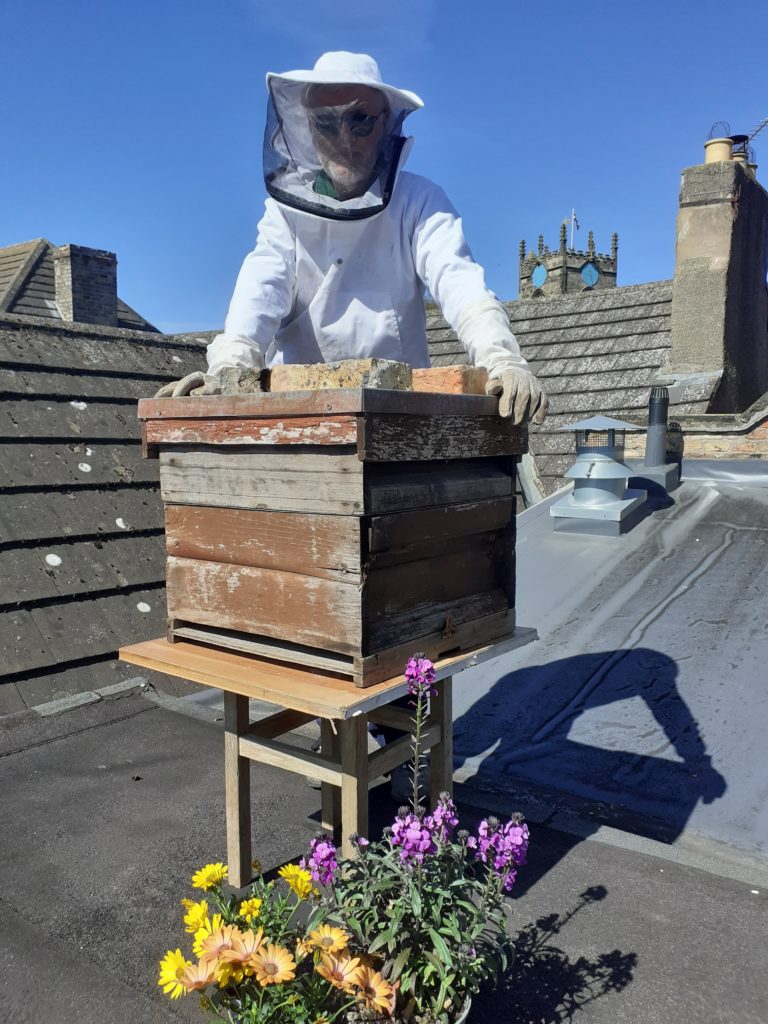
WHAT’S the buzz? Tell me what’s-a-happening at Pocklington Arts Centre?
On World Bee Day (20/5/2021), director Janet Farmer was stung into action to say: “We thought there’s no better time to unveil the beehive we’ve installed on the roof.
“We’re a hive of activity, and not just because we’re preparing to re-open our doors to the public. It’s because we now have a rooftop beehive, along with solar panels and the beginnings of a rooftop garden, in the hope of playing a part in helping to save the bees.”
Explaining the decision, Janet says: “Pocklington Arts Centre (PAC) is committed to seeking ways in which we can reduce our carbon footprint, while doing what we can to support the environment, so when one of our team mentioned he kept bees, we thought a hive would be the perfect addition to our flat roof, alongside our solar panels.
“We’re really excited to have installed the hive and are looking forward to seeing how it becomes established over the spring and summer months. Hopefully, we may even be in a position to produce our very own PAC honey soon!”
The avid amateur beekeeper in question is Paul Jennings, chair of PAC’s management team, who has gifted a hive from his Pocklington home to the Market Place venue.
“With every hive that is set up, you are giving bees a home, which is the important thing,” says Paul, who will be keeping an eye on the rooftop hive as it becomes established potentially with up to 10,000 bees.
“Every home you set up for bees to occupy is something that helps the environment, hence the decision to put a hive on the arts centre roof. Hopefully, we’ll get a resident hive of bees in there soon.”
World Bee Day, abuzz with activity yesterday, has been created by the United Nations with the aim of raising global public awareness around the importance of protecting and preserving bees and other pollinators.
Thirteen bee species have been lost since 1900 and as many as another 35 are on the threatened species list. The changes in seasonal weather are causing problems for bees in finding food and places to nest. What’s more, in the past 60 years, 97 per cent of our vital grasslands have been lost, meaning bees have lost some of their most precious habitats.
